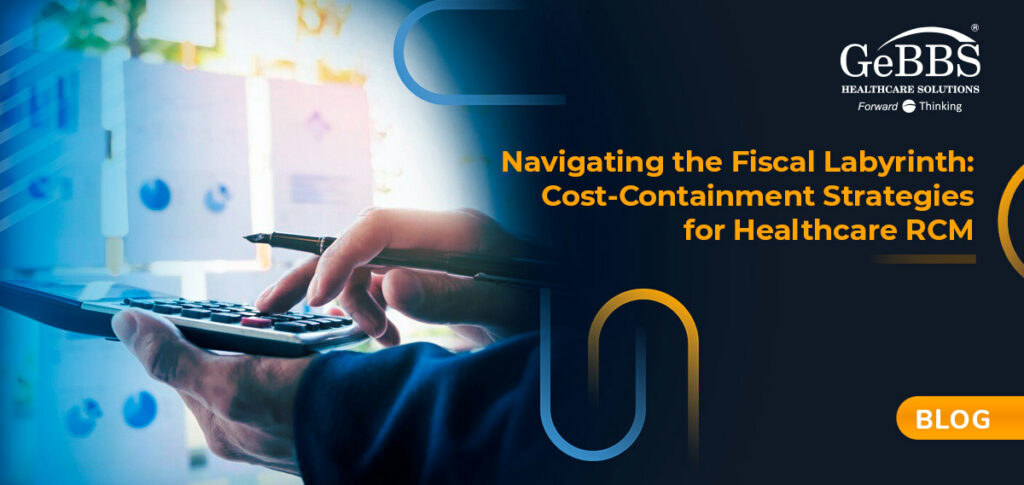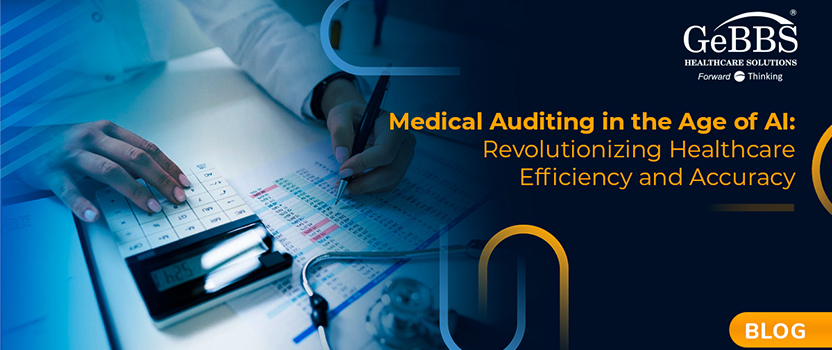In the ever-evolving world of healthcare, Revenue Cycle Management (RCM) stands as a cornerstone, pivotal to the sustainability and efficiency of healthcare providers. As we usher in 2024, GeBBS Healthcare Solutions is at the forefront, decoding and supporting emerging RCM trends that promise to reshape the landscape.
This comprehensive exploration delves into the nuances of these trends, offering insights and strategies to harness their potential effectively.
The Surge in Managed Services Investment
One of the most striking trends is the burgeoning investment in revenue cycle-managed services. Healthcare organizations increasingly turn to these services to address persistent challenges such as labor shortages, payor complexities, and escalating process intricacies.
This shift is quantitatively significant: about 25% of organizations are poised to dedicate over half of their RCM budgets to managed services within the next five years. The implication here is clear – the future of RCM lies in strategic partnerships prioritizing performance and results over mere cost-saving measures.
Medical Billing Errors: A Costly Affliction
The financial hemorrhage caused by medical billing errors is alarming. The U.S. healthcare system loses approximately $935 million weekly due to these errors, primarily from coding mistakes and typos. The impacts are far-reaching – from the 35% of unpaid bills attributed to undetected errors to the 44% inaccuracies driven by inadequate clinical documentation.
Addressing these errors is not just a matter of financial prudence but also a step toward enhancing the credibility and reliability of healthcare services.
Workflow Inefficiencies: The Hidden Culprit
Inefficiencies in RCM workflows, such as manual reviews for medical necessity, add a substantial burden to the claims processing timeline – sometimes as much as 30 minutes per incident. These inefficiencies contribute to a high denial rate for claims, with over 80% of rejections being avoidable.
This scenario has led to over 50% of hospitals reporting negative margins. Streamlining these processes is not just beneficial. It’s essential for the financial health of healthcare providers.
Technology: The Game-Changer in RCM
2024 marks a pivotal year for technological integration in RCM. Flexible, scalable end-to-end RCM technologies are revolutionizing billing and coding, offering vast improvements in accuracy and efficiency.
These technologies, particularly AI and machine learning, are not just tools but strategic assets in enhancing coding accuracy, reducing compliance risks, and ultimately, driving better financial outcomes.
Staff Shortages and Reimbursement Model Changes
The RCM sector continues to grapple with significant staff shortages. Nearly half of all hospital executives report a severe deficit of RCM professionals, compounded by the ongoing remote work trend. These shortages slow down billing processes and exacerbate the challenges in managing patient communications.
Additionally, the rise in high-deductible health plans (HDHPs) necessitates a proactive stance in payment collections, demanding innovative strategies for patient engagement and bill settlements.
The Rise of Patient-Centric Approaches
In response to the increasing financial burden on patients, healthcare providers are adopting more patient-centric approaches. This shift is evident in the growing demand for a retail-like, customer-friendly experience in healthcare.
Online scheduling, mobile intake, and price transparency are becoming indispensable in enhancing patient engagement. These tools improve the patient experience and contribute to higher revenue and patient retention.
Financial Clearance and Diverse Payment Options
Financial clearance tools are gaining prominence, helping hospitals and clinics understand patients’ ability to pay for services. These tools, ranging from eligibility verification to price estimation, are crucial in reducing bad debt and administrative rework.
Additionally, offering various payment options, including online bill pay, merchant services, and phone pay systems, aligns healthcare billing with retail-like ease, fostering higher patient satisfaction and improved payment collections.
Challenges Specific to Each Revenue Cycle Segment
The revenue cycle is a mosaic of interconnected segments presenting unique challenges. The front end focuses on patient acquisition, payment collections, and reducing denials, while the middle cycle deals with staff training, revenue leakage, and the complexities of value-based care.
The back end ensures prompt payment, manages denials, and submits clean claims. Addressing these segment-specific challenges requires a tailored approach, harnessing the right mix of technology, process optimization, and strategic insight.
Technological Advancements in RCM
Advanced technologies are reshaping RCM practices. AI-driven solutions enhance clinical documentation and coding, improving accuracy and efficiency. Web-based infusion and injection coding tools bring clarity and consistency to complex charging rules, reducing audit risks.
These technologies streamline operational processes and position healthcare providers for better compliance and financial health.
The Impact of Customizable Solutions
Customizable end-to-end solutions are a linchpin in improving claims reimbursement management. Integrating these solutions into existing workflows allows healthcare providers to manage payer claims more efficiently, accelerating cash flow and reducing administrative costs.
These solutions extend beyond operational efficiency; they embody a strategic approach to RCM, aligning financial objectives with patient care priorities.
Financial Engagement and Omnichannel Platforms
Financial engagement tools have become more sophisticated, offering omnichannel platforms that connect hospitals and clinics financially with their patients.
These comprehensive solutions encompass everything from digital notifications to document management systems, streamlining the payment collection process and enhancing the overall patient experience.
The Role of Strategic Partnerships
Strategic partnerships in RCM are not just about outsourcing services; they are about creating an ecosystem that fosters seamless collaboration between providers and payers.
These partnerships provide easy administrative and clinical data access, integrating automated products and capabilities into existing workflows. This synergy allows healthcare providers to manage payer claims more effectively, freeing up resources to focus on delivering exceptional patient care.
Things to Remember
The RCM landscape of 2024 is a complex yet promising domain. At GeBBS Healthcare Solutions, we understand the intricacies of these emerging trends and are committed to guiding healthcare providers through this transformative journey. Our approach is holistic, blending technological innovation with strategic insights to enhance the efficiency and effectiveness of RCM processes.
As we navigate these trends, our goal remains steadfast: to create a more efficient, patient-focused healthcare system where financial health and patient care go hand in hand. In this ever-changing world of RCM, GeBBS stands as a beacon, guiding the way toward a brighter, more efficient future in healthcare management.
References:
https://hitconsultant.net/2023/12/08/rise-of-rcm-managed-services-95-of-healthcare-execs-embrace-rcm-outsourcing/
https://jamanetwork.com/journals/jama/fullarticle/2785479






